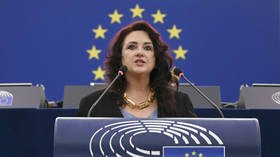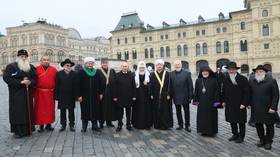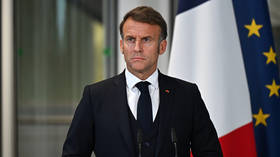Outcry forces EU to ditch plan for ‘inclusive’ language

The European Commission has walked back an attempt to mandate the use of “inclusive” language after lawmakers claimed the new rules were an effort to “cancel” Christian references and lacked “common sense.”
An internal guidebook for inclusive communication called on EU officials to “update their language” and avoid phrasing that was considered not reflective of the “diversity of European culture.” The new guide encouraged the use of gender-neutral language and non-Christian names, among other things.
In a statement on Tuesday, EU Equality Commissioner Helena Dalli noted that the guidebook was not a “mature document” and acknowledged that it “does not meet all Commission quality standards.” She tweeted that the document was a “work in progress” and said an “updated version of the guidelines” would address the concerns that had been raised regarding examples of discouraged language.
Concern was raised with regards to some examples provided in the Guidelines on Inclusive Communication, which as is customary with such guidelines, is work in progress. We are looking into these concerns with the view of addressing them in an updated version of the guidelines. pic.twitter.com/90ZK8rpPb2
— Helena Dalli (@helenadalli) November 30, 2021
Withdrawing the document, Dalli added that the “version of the guidelines published” does not “adequately serve” its purpose of showcasing the Commission’s “inclusive nature” with relation to gender, sexual orientation, religion, ethnic backgrounds and culture.
While Brussels officials have previously been given “reminders” to watch their language, this is thought to be the first time an actual rule book was issued. According to The Telegraph, staff were told to be “sensitive to ... different religious traditions” and not “presume” someone’s sexual orientation and gender identity.
Some European politicians criticized the guide as an attempt to eradicate Christian references, citing recommendations to avoid “assuming that everyone is Christian” and the suggestion to use non-biblical first names – such as “Malika and Julio” instead of “Maria and John” – as examples in stories and publications. Some lawmakers and media outlets interpreted this to be an outright ban on the common Christian names.
“The EU Commission should be defending our values not trying to change our identity. Efforts to limit references to the word Christmas and Christian names is both bizarre and disappointing,” Maltese MEP David Casa tweeted. He later called Dalli’s retraction a victory for “common sense.”
Other recommendations in the guidebook included replacing gendered words such as “man-made” and “ladies and gentlemen” with the neutral phrases “human-induced” and “dear colleagues.” Similarly, it would have frowned on the use of “default” masculine terms as “workmen,” and the use of traditional binary pronouns “he” and “she” should someone prefer “they” or “Mx.”















